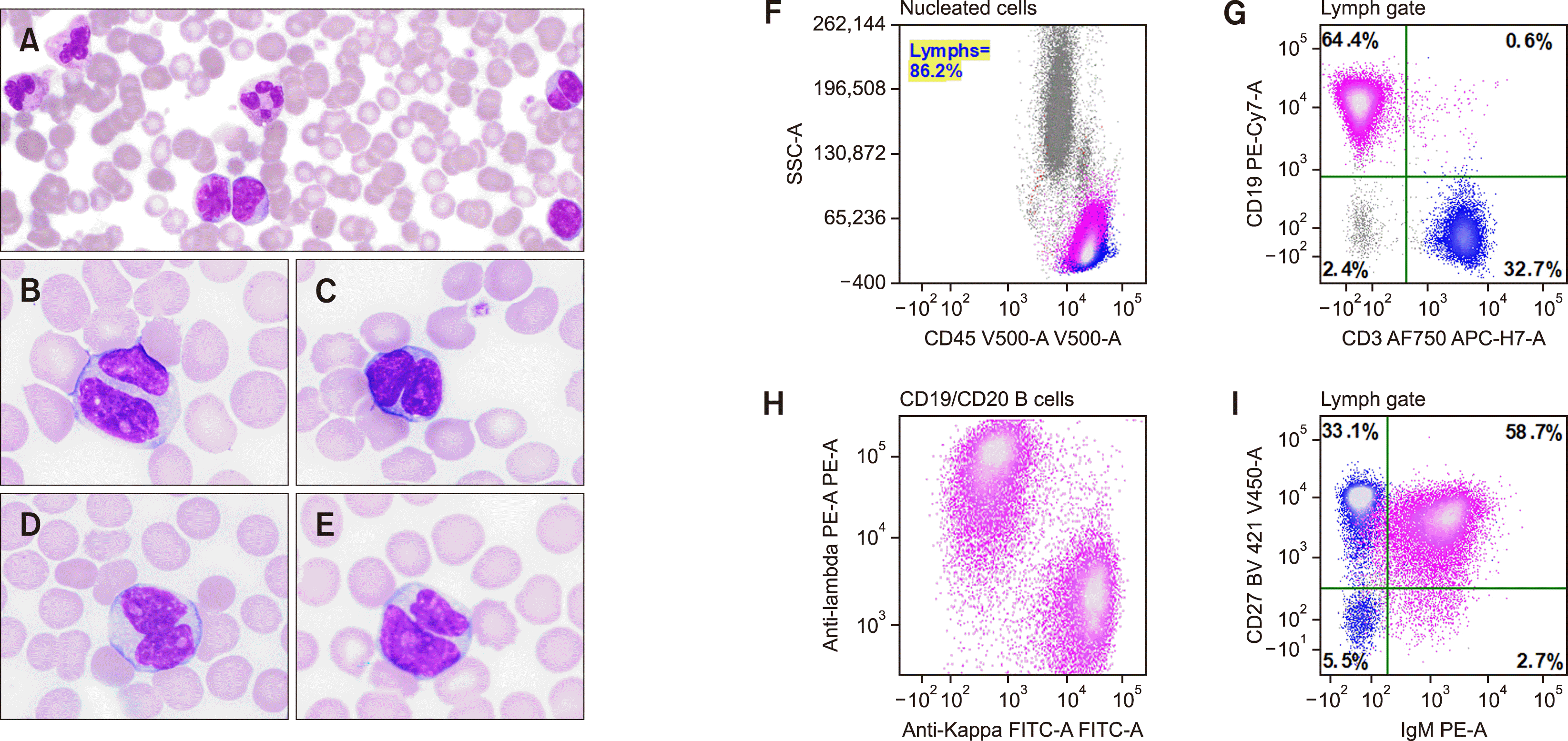
A 52-year-old woman was found to have leukocytosis [19.4×109/L (range, 4–11)] with absolute lymphocytosis [5.8×109/L (range, 1–4.8)] for ∼1 year. Peripheral blood (PB) showed circulating atypical, binucleated and clefted lymphocytes mimicking “buttock cells” of follicular lymphoma. PB flow cytometry (FC) showed polytypic B-cell lymphocytosis (64.4%) expressing CD19+ CD20+CD27+IgM+ and CD5-CD10-CD38-. No cutaneous lesions were noted. A staging bone marrow showed no evidence of lymphoma. Cytogenetics showed a normal female karyotype. Serum IgM levels were increased [8.4 g/L (range, 0.35–2.4)], with normal IgA and IgG levels. Serum protein electrophoresis and immunofixation studies showed no M-protein. PET-CT showed no lymphadenopathy or hepatosplenomegaly. She had 30-years smoking history. Based on the above findings, persistent polyclonal B‐cell lymphocytosis (PPBL) was diagnosed. PPBL is a benign proliferation of memory B-cells in adult women with longstanding smoking history. Exact pathogenesis of PPBL is not known, potential mechanisms include defect in CD40 activation pathway or expansion of functional CD27+ memory B-cells. About 90% of PPBL cases are HLA-DR7-positive. Recurrent cytogenetic abnormalities such as +i(3q) and even immunoglobulin gene rearrangements have been identified. Next‐generation sequencing results in PPBL have not been well-studied, we found, low-level NOTCH2 R2400* mutation in our patient. Given the low mutant allele frequency (VAF <5%) and lack of immunoglobulin gene rearrangement, the significance of this mutation is unclear. As per literature, this variant is most common recurrent mutation in subset (∼20%) of marginal zone lymphoma that have NOTCH2 mutation. The clinical course of PPBL typically remains stable for years. Smoking cessation and splenectomy are reported to be effective in these patients. Morphologic correlation in PPBL along with smoking history and negative FC even in presence of genetic changes is essential to avoid lymphoma misdiagnosis.




 PDF
PDF Citation
Citation Print
Print


 XML Download
XML Download